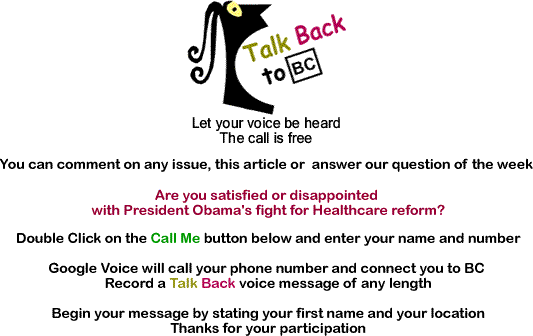
|
||||||||||||||||||||||

|
|
 |
|
In accordance
with the briefing schedule set by the Bankruptcy Court, the Trusteeís
brief on the question of net equity will be submitted shortly. In reading what little the Trustee has said in the past to justify his cash-in / cash-out position on net equity, a couple of thoughts struck me that, as far as I can recollect, have thus far not been made by opponents. I shall set them forth here. The Trustee has said from early-on that cash-in / cash-out is justified because persons who took out money from Madoff received money put in by other investors. True, but he neglects to mention that the money put in by persons who also took out money was likewise used to pay other investors. Some of those other investors were prior ones, but some might even have been subsequent ones because, up until the last year or so, Madoff appears to have had 17 to 20 billion dollars in his account at JP Morgan Chase. The meaning of all this is that, for example, if someone invested one million dollars in 2001, her money was used to pay off other investors, many or all of whom took out more than they put in, just as other peopleís money was used to pay her when she later took out sums that could have been equal to or more than she put in.
This brings me to the legitimate expectations of investors, denoted by the sums shown on their November 30th statements. Much has already been written about legitimate expectations in briefs and blogs, but let me add one point that has rarely if ever been explicitly mentioned, although often it has seemed implicit to me. The point in mind is this: even aside from the fact that Congress mandated it, why should the amounts shown as owing to her in statements received by an innocent investor be considered her legitimate expectation? The answer, though quintessentially simple, is overlooked by Picard and almost everyone else too. It is that the innocent investor, like anyone else, plans her life around the amounts of money that she justifiably believes she has, including the amount shown on her statement. Her purchases, her expenditures - everything gets planned around the amount of money she thinks she has, including what is shown on her statements. That is why the amount shown in the statement must be considered the net equity of an innocent investor who never suspected fraud (this would not include the Picowers and Chaises) unless you are in the business of screwing people. The innocent person made her plans based on what she legitimately thought she had - knowing of course that she is subject to market risk, as everyone is in investments, but never having any reason to suspect fraud - a fraud which continued only because the government she relied on was so phenomenally negligent that its failure to catch Madoff was defacto intentional. Just this week a lawyer explained to me a point which I shall use to further support my point. I donít know that the lawyer has yet written the point in a brief - the lawyer may or may not have. I am confident it will appear in future briefs, but donít know if the lawyer wishes to be identified now, so I wonít identify the attorney and will say only that I thought the point most salient. Suppose, said the attorney,
you have put $100,000 into a bank, and over the years received statements
saying that (because of interest) you now have $150,000 in your
account. Then the bank declares bankruptcy, and the FDIC says it
will only pay you $100,000 because the bank was insolvent the whole
time and so the interest credited to your account was phantom interest,
phantom profit. You would hear the screams from here to The situation would be even closer if the FDIC, in the example, were acting to save itself because it will run out of money, as may be - and I think is - what accounts for SIPCís action here, as has been discussed in a prior post. Let me make yet one other point
regarding net equity. So far people - including me - seem to have
been operating under the assumption that if you have a negative
net equity for purposes of SIPC, which so many do under Picardís
cash-in / cash-out theory, then not only do you fail to get any
money from SIPC, but you also have no right to any share of the
estate, to any share of what I gather is called customer property
by Picard and Harbeck. Perhaps it is also possible that Picard is conflating the two ideas deliberately because he knows, as one expert told me (I think I understand him correctly), that clawbacks in bankruptcy are limited to 90 days. By using cash-in / cash-out to arrive at a negative net equity, and by using that negative net equity as the measure of a personís relationship to the estate, it is suggested (if I understand things rightly) that Picard is putting someone who received a nonfraudulent preference in the position of owing money to the estate. The money may not be collectible because of timing rules, I gather, but at least the investor wonít have to be paid money by the estate (if I understand right, which may be questionable).
Let me close with a brief point which is on a different subject than net equity, but which relates to the Trustee. For months I have wondered - and have written of the wonderment - why Madoff had given what apparently is more than seven billion dollars to a guy who put in only about $1.5 billion, Jeffry Picower. The only thing I could think of was that maybe Picower was fronting for the Mafia or for one or more secret services. But someone has now told me a different possible reason which has an immediate ring of truth, though one cannot yet know if it is true and can only hope that Picard, the FBI and the U.S. Attorney are all tracking it down.
BlackCommentator.com
Columnist, |
|
 |
|
Any BlackCommentator.com article may be re-printed so long as it is re-printed in its entirety and full credit given to the author and www.BlackCommentator.com. If the re-print is on the Internet we additionally request a link back to the original piece on our Website. Your comments are always welcome. eMail re-print notice
If you send us an eMail message we may publish all or part of it, unless you tell us it is not for publication. You may also request that we withhold your name. Thank you very much for your readership. |
|
| |
|
| October
15 , 2009 Issue 346 |
|
| Executive Editor: Bill Fletcher, Jr. |
| Managing Editor: Nancy Littlefield |
| Publisher: Peter Gamble |
| Est. April 5, 2002 |
Printer Friendly Version
in resizeable plain
text format or pdf
format. |
 |

|
| |
| |





























 What
I am trying to say here is that Picardís model is, in effect, simple
minded because it neglects portions of the reality. His comments,
you know, have the aura of blaming people who took out more than
they put in, because, he says, they received other peopleís money
and therefore should get nothing. He does not mention that, correlatively,
other people received their money - and, if these others
cashed out completely over six years ago, will never have to repay
the money.
What
I am trying to say here is that Picardís model is, in effect, simple
minded because it neglects portions of the reality. His comments,
you know, have the aura of blaming people who took out more than
they put in, because, he says, they received other peopleís money
and therefore should get nothing. He does not mention that, correlatively,
other people received their money - and, if these others
cashed out completely over six years ago, will never have to repay
the money.
 Put
differently, what is net equity for SIPC purposes also controls
for bankruptcy purposes: No net equity for SIPC purposes means no
share in the bankruptcy estate. But reading some cases cited by
Picard for his cash-in / cash-out theory makes me wonder whether
this is necessarily true; makes me wonder whether what is net equity
for SIPC purposes does control what oneís share of the bankruptcy
estate is. The cases cited by Picard were not SIPC cases;
they were bankruptcy cases. For bankruptcy law, cash-in / cash-out
might make some sense, because legitimate expectations, which are
a linchpin of net equity under SIPC pursuant to both Congressional
intent and case law, conceivably seem not pertinent in bankruptcy.
So I would think it at least conceivable that under the law someone
might have a positive net equity under SIPC because her November
30th statement is the legitimate expectation and the measure of
net equity, yet have little or no interest in the bankruptcy estate
because she took out more from Madoff than she put in. It may
be that all of us, Picard included, have wrongly been conflating
two ideas that are not necessarily the same.
Put
differently, what is net equity for SIPC purposes also controls
for bankruptcy purposes: No net equity for SIPC purposes means no
share in the bankruptcy estate. But reading some cases cited by
Picard for his cash-in / cash-out theory makes me wonder whether
this is necessarily true; makes me wonder whether what is net equity
for SIPC purposes does control what oneís share of the bankruptcy
estate is. The cases cited by Picard were not SIPC cases;
they were bankruptcy cases. For bankruptcy law, cash-in / cash-out
might make some sense, because legitimate expectations, which are
a linchpin of net equity under SIPC pursuant to both Congressional
intent and case law, conceivably seem not pertinent in bankruptcy.
So I would think it at least conceivable that under the law someone
might have a positive net equity under SIPC because her November
30th statement is the legitimate expectation and the measure of
net equity, yet have little or no interest in the bankruptcy estate
because she took out more from Madoff than she put in. It may
be that all of us, Picard included, have wrongly been conflating
two ideas that are not necessarily the same.











